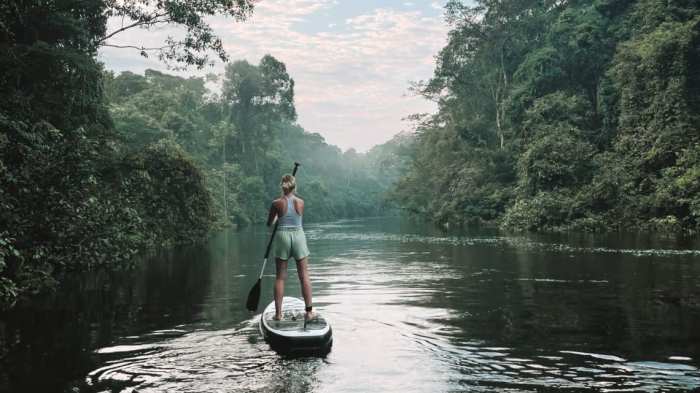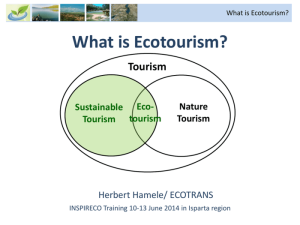
Embark on a journey with Conservation Travel and Ecotourism, where responsible travel meets nature preservation in a harmonious blend of exploration and conservation. Discover how these initiatives are shaping the future of sustainable tourism.
Explore the intersection of travel, conservation, and environmental protection in a way that benefits both travelers and the planet.
Conservation Travel

Conservation travel, also known as eco-tourism, focuses on traveling responsibly to natural areas with the goal of conserving the environment, supporting local communities, and protecting wildlife.
Examples of Conservation Travel Initiatives
- Volunteer programs in Costa Rica that involve reforestation efforts and wildlife conservation projects.
- Educational tours in Africa that raise awareness about the importance of protecting endangered species like elephants and rhinos.
- Ecotourism lodges in the Amazon rainforest that support conservation efforts and sustainable practices.
Importance of Conservation Travel
Conservation travel plays a crucial role in preserving natural habitats and wildlife by generating income for conservation projects, raising awareness about environmental issues, and promoting sustainable practices in the tourism industry.
How Travelers Can Participate
- Choose eco-friendly accommodations and tour operators that prioritize sustainability.
- Support local conservation initiatives by visiting national parks, wildlife reserves, and protected areas.
- Participate in volunteer programs or community-based projects that contribute to conservation efforts.
- Respect wildlife and natural habitats by following guidelines on responsible tourism and ethical wildlife interactions.
Ecotourism

Ecotourism is a type of tourism that focuses on visiting natural areas to learn about conservation efforts and promote environmental sustainability. It aims to minimize the impact on the environment and support local communities.
Principles of Ecotourism
- Responsible travel to natural areas
- Conservation of the environment
- Sustainable use of resources
- Support for local communities
- Educational experiences for visitors
Key Differences from Traditional Tourism
- Focus on conservation and sustainability
- Small-scale, low-impact tourism activities
- Emphasis on education and awareness
- Direct benefits to local communities and conservation efforts
Benefits of Ecotourism
Ecotourism can bring numerous benefits to local communities and the environment, such as:
- Generating income for local communities
- Creating job opportunities in rural areas
- Promoting conservation efforts and biodiversity protection
- Raising awareness about environmental issues
Successful Ecotourism Projects and Impact
- The Galapagos Islands: Ecotourism has helped protect the unique biodiversity of the islands while providing sustainable livelihoods for local communities.
- Costa Rica: Ecotourism initiatives have contributed to the preservation of rainforests and wildlife habitats, boosting the country’s economy through responsible tourism.
- Bwindi Impenetrable National Park, Uganda: Ecotourism focused on gorilla trekking has supported conservation efforts and community development, showing the positive impact of sustainable tourism.
As we conclude our exploration of Conservation Travel and Ecotourism, it’s evident that through mindful travel choices, we can make a positive impact on the world around us. Let’s continue to prioritize sustainability and conservation in our future adventures.
FAQ Explained
How can travelers contribute to conservation efforts during their trips?
Travelers can participate in activities like wildlife monitoring, habitat restoration, and supporting local conservation projects to contribute to conservation efforts.
What are some successful examples of ecotourism projects?
Projects like community-based tourism initiatives, sustainable wildlife viewing programs, and eco-lodges that prioritize environmental conservation have shown success in promoting ecotourism.





